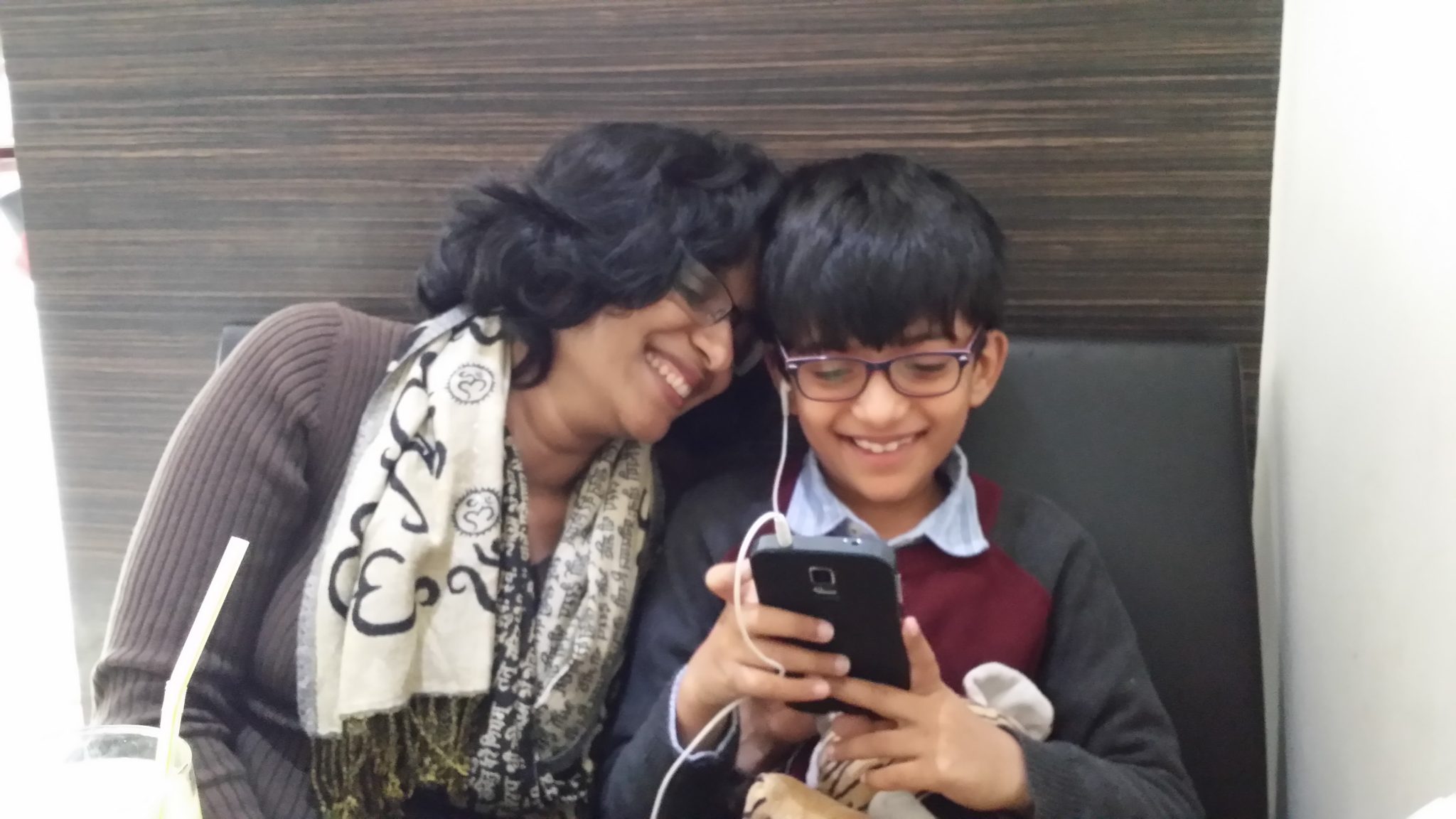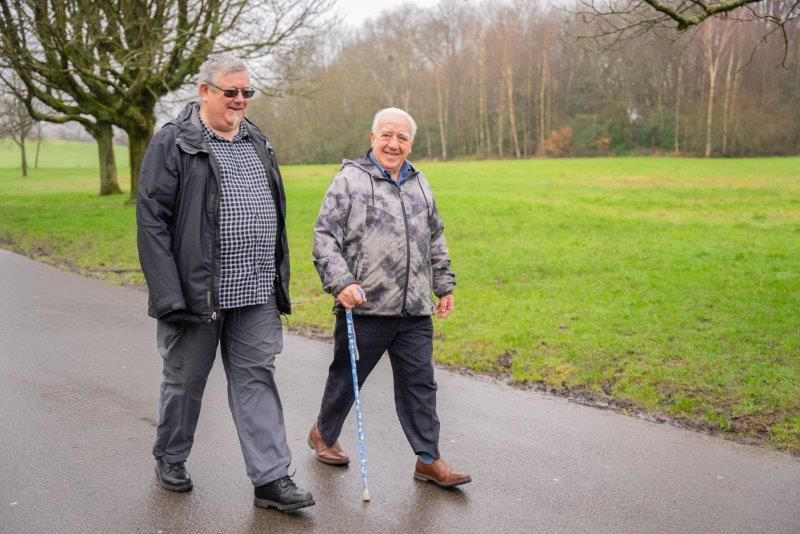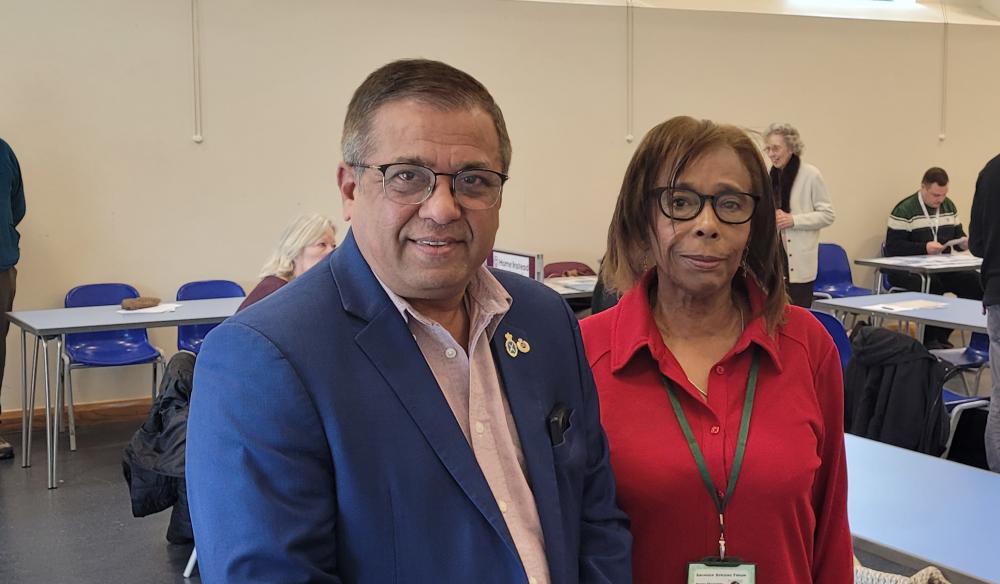With Valentine’s Day just around the corner, many couples will be making plans for a romantic evening, but for parents of a child with a learning disability this may be easier said than done.
New research has found that nearly a quarter (24 per cent) only find time for a date night once a year or less, compared to less than a fifth (17 per cent) of other parents.
The same study found that four in ten (39 per cent) parents of a child with a learning disability identified money worries as a strain on their relationship – compared to 29 per cent of other parents.
The study also found that one in three are in a relationship which would be described in the counselling room as “distressed”.
The report, Under Pressure: The relationships of UK parents who have a child with a learning disability, was produced by leading relationships charities Relate and Relationships Scotland and is sponsored by learning disability charity Mencap.
Over 5,000 people were questioned as part of the study, including 280 parents of a child with a learning disability.
In response to these findings, Relate Gloucestershire and Swindon is joining national charities, Relate, Relationships Scotland and Mencap to call for better access to short breaks services, improved childcare support for parents of children with a learning disability and targeted relationship support.
The charities say that, together, these measures would reduce the strains on parents’ relationships and ensure families can enjoy the positives that having a child with a learning disability brings.
Kimberley Wall, Service Development Manager at Relate Gloucestershire and Swindon said: “We already know that strong relationships are crucial for everyone, especially parents, so it is important we invest in people’s support systems particularly when there are additional pressures affecting them.
“This new report provides some key insights into the particular challenges placed on the relationships of parents who have a child with a learning disability so now health and policy makers must ensure that relationship counselling or support services are available to all families in Gloucestershire and Swindon if they need them”.
The Under Pressure report also revealed that parents without a child with a learning disability were more likely to report that ‘different interests’ caused a strain on their relationship than those parents who have a child with a learning disability.
This could illustrate how vital the relationship is in terms of support for parents who have a child with a learning disability in finding the tools and time to continue sharing their mission or interests together.
Jan Tregelles, Chief Executive of Mencap, said: “It is upsetting - but not surprising - to hear about the relationship pressures faced by parents of children with a learning disability, especially as Mencap’s own research shows these strains are avoidable.
“Having a child with a learning disability is not the guarantee of hardship that many would have us believe. Despite this, many families are living without access to necessary support and interventions which can be the difference in a family reaching breaking point or not.
“As a society, we have a lot to learn about how to deal with disability. Public attitudes can lead to parents feeling isolated and authorities too often see the child as the problem. But we know that if parents are able to get the right help, such as financial support and better access to short breaks and extra childcare, poorer family wellbeing is not inevitable, and, in fact, these families’ relationships can really flourish.”
Relate Gloucestershire and Swindon’s relationship tips for parents who have a child with a learning disability
- Check in regularly with one another. Find a quiet time, maybe just before bed or first thing in the morning, when you can check how the other person is feeling. Is there anything in your relationship that isn’t working? Are you feeling listened to? Is there something your partner needs help with? You are one another’s biggest source of support and keeping those channels of communication open is vital to a successful relationship.
- Make a list of one another’s strengths. Explore what you can do to support your child and divide up tasks based on your strengths. Not only will this help your child but it will reduce stress and increase co-operation, in turn strengthening your partnership as a couple.
- Date nights don’t have to cost the earth. The term ‘date night’ can be misleading because it implies you have to go out and splash the cash. It’s important to make time for one another but when you’re short on finances and have caring duties a date in a fancy restaurant or trip to the theatre may be tricky. Playing a board game together, baking a cake or watching a film together on TV could be just as beneficial to your relationship and save time and money.
- Don’t forget to do something together on occasions such as Valentine’s Day. This may be even more important for parents who have any external pressures on their time or finances. If it isn’t practical to plan a regular ‘date night’ then use occasions to ensure both partners feel appreciated by the other by simply spending time alone together.
- Work together on finding savings and support. Be proactive in deciding together where you can make savings to your finances and free up time. This may mean asking for support from family and friends and finding out from your local authority what services are available locally to help with childcare.
- Join Mencap’s FamilyHub. Mencap has launched a brand new online community that connects parents who have a child/children with a learning disability, to share experiences, triumphs and challenges, and to offer support and guidance to others whose family situation is similar to their own. Visit www.mencap.org.uk/familyhub
to find out more.
Struggling to cope? Relate Gloucestershire and Swindon offers a range of relationship support services for couples and families. Call us on 01242 523215 or visit http://www.relateglos.co.uk/ for more information.









Your Comments
Be the first to comment on this article
Login or Register to post a comment on this article